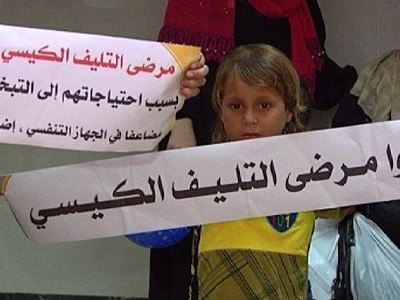
Scores of Palestinian children being treated at a Gaza City Hospital for cystic fibrosis are facing possible imminent death, relatives and medical sources told Ma’an.
Rights groups described the current situation in Gaza as the worst medication crisis the besieged Gaza Strip has seen in years, stemming from debilitating budget cuts by the Palestinian Authority (PA).
The PA has been the center of widespread condemnation in recent weeks for its policies in Gaza aimed at putting pressure on Hamas to relinquish control of the besieged coastal enclave and hand over the territory to the PA.
MOH said #Gaza hospitals are suffering due to lack of electrixity. Also said that more than 50% of Gaza beach is polluted completely.
— Omar Ghraieb?? (@Omar_Gaza) July 9, 2017
The main victims of the current medication crisis are cancer patients, infants with developmental deficits, and hundreds of cystic fibrosis patients, according to a report last month from Physicians for Human Rights Israel (PHRI).
Information gathered by PHRI showed that the PA’s regular monthly budget for Gaza medical supplies had been $4 million, but dropped to $2.3 million in April, and to a mere $500,000 in May. As a result, one-third of essential medicines and more than 270 medical equipment items for operating rooms and intensive care units have vanished from the health ministry’s storerooms or in Gaza’s hospitals.
Chairman of the Association of Cystic Fibrosis Patients in Gaza Ashraf al-Shanti has said that over 320 cystic fibrosis patients are in mortal danger. He said the patients require 40,000 Cryon pills, but storerooms were already completely empty as of mid-June.
? Health policy development ?
The PA eliminated all the budget for drugs for Gaza's hospitals.— ab (@Abc11Ab) July 6, 2017
The parents of young cystic fibrosis patients being treated at Abd al-Aziz al-Rantisi hospital west of Gaza city told Ma’an that the life-saving medication has become a “distant dream,” and also reported that alternative medicine being provided by the Palestinian Health Ministry is actually worsening the conditions of their children.
Muhammad al-Yaqoubi, the father of six-year-old cystic fibrosis patient said that his son’s illness has drastically deteriorated since the medicine disappeared from storerooms and hospitals in the small Palestinian territory, which is meanwhile struggling to cope with just a few hours of power per day as a result of an agreement between Israel and the PA to slash electricity supplies.
“I used to take my son to al-Shifa Hospital to get the medicine, but it has been unavailable for the last six months. The ministry of health provided an alternative for the medicine, but it only made my son’s condition grow worse,” al-Yacoubi said.
Today marks 3 years since the Gaza war. 6,300 families remain displaced. 8,135 of 11,000 houses are still totally destroyed. #Gaza3YearsOn pic.twitter.com/D9zL4IU2Az
— NRC (@NRC_Norway) July 8, 2017
The man said that his son is facing the possibility of death “at any moment.” Al-Yacoubi’s first son, who also had cystic fibrosis, died for want of treatment when the family could neither find medication in Gaza nor obtain Israel permission to leave the blockaded coastal enclave for treatment at Israeli hospitals.
Umm Moyad Moussa, the mother of a child who suffers from cystic fibrosis, said that the alternative medicine provided by the ministry of health is half as effective as the original medicine, particularly for young children.
She said most children are unable to swallow the new, bigger pills, which, when ground or broken up lose their effectiveness, and also risk irritating the respiratory and digestive system.
Healthcare inside Gaza has greatly suffered as part of the decade-long Israeli siege, with Israel limiting medical equipment allowed in and restricts travel for doctors seeking further medical training and specialization.
“The humanitarian crisis in Gaza must be a wake-up call for everyone able to solve the problem,” PHRI Executive Director Ran Goldstein said last month. “Gaza’s children have become hostages in the political game played by the Palestinian Authority, Hamas, and Israel. The change must be dramatic and immediate – providing funds, medicines, and electric power, opening Gaza to the outside world and offering urgent humanitarian assistance.”





